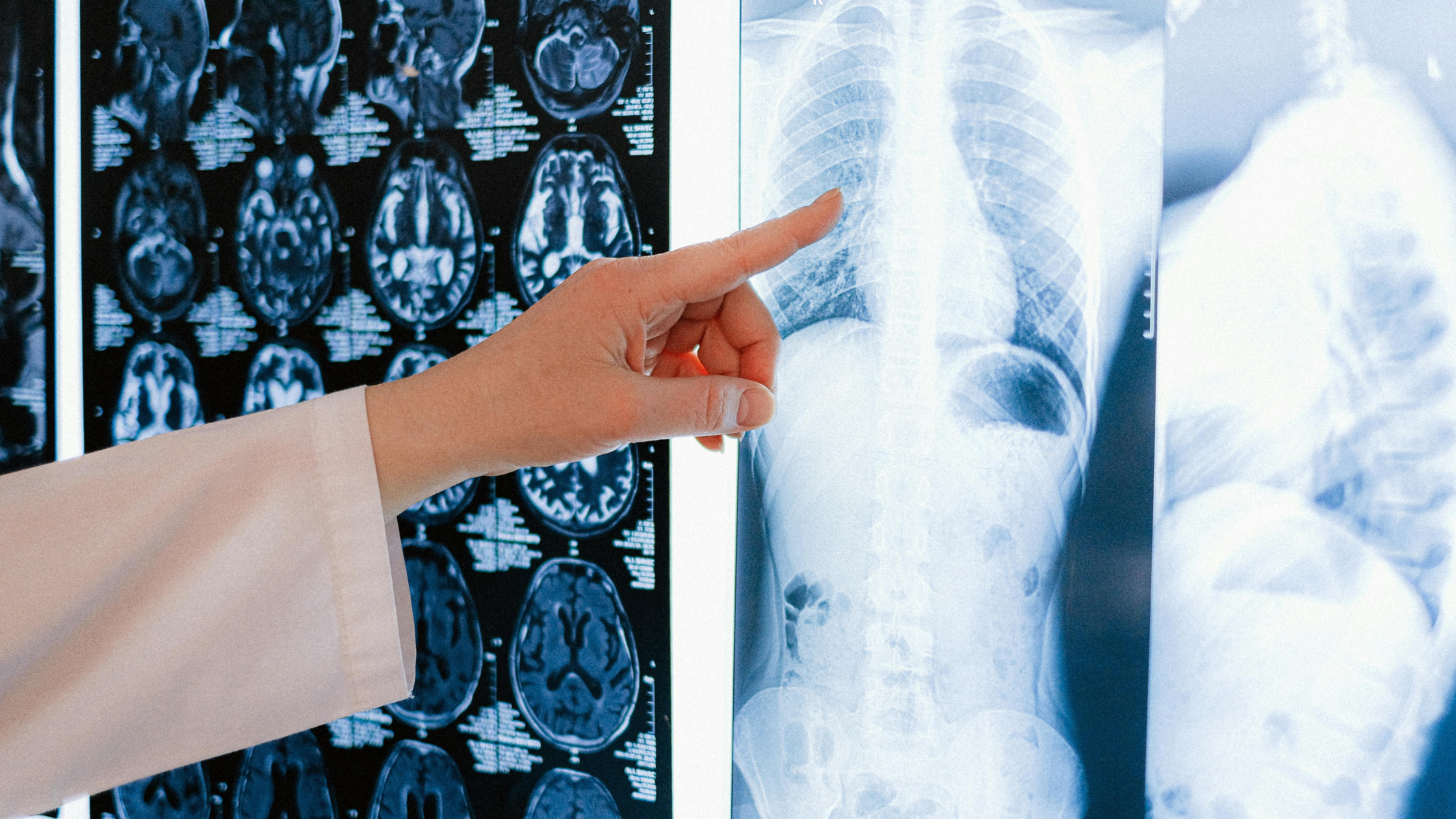Understanding How Hormones Affect Focus During Menopause
THE UPSHOT
- Estrogen boosts dopamine and norepinephrine signaling; loss can mimic or amplify ADHD symptoms.
- Some women experience “late-onset ADHD” patterns during perimenopause due to neurochemical shifts.
- Hormone therapy and stimulant medications may work differently after menopause.
- Key supports: tyrosine, B-vitamins, adaptogens, mindfulness, exercise, and sleep regulation.
- In this changed hormonal environment, your brain is learning a new way to focus.
I’ve often heard from my clients about walking into a room mid-sentence and forgetting why they were there. Or that they’ve found themselves staring blankly at an open email, or lost their train of thought halfway through a conversation. And more than a few of these clients are older women, even though these symptoms may happen anytime one is experiencing hormone recalibration.
Many in perimenopause and menopause–one type of hormonal fluctuation– describe a new kind of mental static: distractibility, impulsive multitasking, unfinished projects, and a sense that focus has fractured. For some, these symptoms mimic attention-deficit patterns so closely they wonder, “Do I have ADHD?”
Here’s the twist: menopause can create a neurochemical landscape that looks a lot like ADHD and the root cause isn’t necessarily attention deficit. It’s hormonal recalibration (1).
Estrogen doesn’t just regulate cycles, it shapes cognition. It amplifies dopamine and norepinephrine transmission in the prefrontal cortex, the brain’s executive center for planning, working memory, and focus. These recalibrations occur throughout a woman (and a man’s) life. Think puberty or pregnancy.
When estrogen declines, as it does in menopause, dopamine signaling weakens, and the circuits responsible for motivation and sustained attention lose their spark (2). Think of it as the brain’s gas pedal losing pressure: it still works, but it takes more effort to accelerate.
ADHD v. Brain Fog
ADHD (attention-deficit/hyperactivity disorder) is a difference in how the brain manages attention, motivation, and energy. For many adults, especially women, it can feel like having a dozen browser tabs open at once–each one is important, but none staying quiet for long.
This condition is linked to how certain brain networks regulate dopamine and executive function. When those pathways fire a little differently, it can be harder to organize thoughts, finish tasks, or transition smoothly between them. You might notice bursts of deep hyperfocus followed by mental fatigue, misplaced items, or a to-do list that never feels done.
Emotionally, ADHD can bring creativity, intuition, and big-picture thinking, and moments of overwhelm or self-criticism. The difference between ADHD and general “brain fog” is that ADHD tends to be consistent. There’s a pattern to how your brain processes and prioritizes. Brain fog, on the other hand, is often temporary, and likely tied to things like hormone fluctuation, poor sleep, inflammation, or stress.
Menopause can feel like “late-onset ADHD”
For women who already have ADHD, hormonal shifts may amplify symptoms. For others, it may unmask vulnerabilities that were previously buffered by balanced estrogen levels. Clinical researchers have even proposed that some cases of midlife distractibility represent a distinct subtype of cognitive menopause driven less by stress or mood, and more by dopamine depletion (3).
That neurochemical backdrop also explains why certain medications or therapies may feel different post-menopause.
Responses to stimulants can shift because the dopaminergic system itself is altered, and the same goes for hormone therapy. The balance between estrogen and progesterone, as well as timing and formulation, can significantly influence how well the brain regains its rhythm (4)(5).

Brain support
Brain fog tends to feel like sluggish processing. Words just out of reach, slower recall, a sense of fuzziness. ADHD-like distraction feels more like mental ping-pong. You’re alert but scattered, constantly switching gears.
Either way, your brain is likely sending a biochemical message that it needs more support.
And that support is multifaceted. Before you explore these measures, contact your healthcare practitioner.
Dopamine depends on a steady supply of nutrients like tyrosine, an amino acid precursor found in beans, almonds, and pumpkin seeds.
B-vitamins (especially B6, B9, and B12) are crucial cofactors in neurotransmitter synthesis.
Adaptogens like rhodiola and ashwagandha help modulate the stress response that further depletes dopamine and norepinephrine.
Mindfulness practices retrain attention networks, while regular exercise increases dopamine receptor sensitivity, offering a natural neurochemical boost.
Sleep and circadian rhythm are key, too—dopamine release follows a daily rhythm, and poor sleep can blunt both neurotransmitter production and receptor sensitivity.
Eating enough protein at breakfast, managing blood sugar, and hydrating properly all help stabilize the energy that attention depends on.
Estrogen has always helped power the motivation and attention circuits that keep you on task and inspired. When levels shift during menopause, your brain reroutes, finding new pathways to stay engaged (6).
Once you understand that connection, the moments of distraction or forgetfulness start to make sense. You can approach them with curiosity instead of frustration. Think of it as learning a new way to use your brain’s energy.
Remember: your brain is relearning how to pay attention. The same transition that challenges focus–menopause– also invites you to redefine how you nourish your mind, your motivation, and your capacity to be fully present.
xo – Serena
FAQ
Q: How do I know if my symptoms are hormonal or true ADHD?
A: Timing offers clues. If focus and motivation changed dramatically during perimenopause or after your last period—and you didn’t experience these patterns earlier—it’s more likely hormone-related. A clinician trained in both ADHD and women’s hormone health can help clarify.
Q: Can hormone therapy help?
A: For some, yes. Estrogen therapy can enhance dopamine signaling, improving mood and cognition. But responses are highly individual and depend on age, timing, and whether you still have a uterus (which influences progesterone balance). Always discuss with a provider versed in neuroendocrine health.
Q: What about coffee or stimulants–do they still work?
A: Many women find caffeine or ADHD medication feel different post-menopause. Lower estrogen may blunt dopamine response, meaning you might not feel the same clarity—or may feel jittery instead. Nutritional and adaptogenic support can help stabilize neurotransmitter balance for smoother focus.
Q: What’s one simple shift I can make today?
A: Eat a protein-rich breakfast with tyrosine (like chia pudding with pumpkin seeds) and get early daylight exposure. Those two steps help synchronize dopamine rhythms and improve morning focus naturally.
CITATIONS
- Chapman L, Gupta K, Hunter MS, Dommett EJ. Examining the Link Between ADHD Symptoms and Menopausal Experiences. J Atten Disord. 2025 Jul 30:10870547251355006. doi: 10.1177/10870547251355006. Epub ahead of print. PMID: 40738484.
- Almey A, Milner TA, Brake WG. Estrogen receptors in the central nervous system and their implication for dopamine-dependent cognition in females. Horm Behav. 2015 Aug;74:125-38. doi: 10.1016/j.yhbeh.2015.06.010. Epub 2015 Jun 27. PMID: 26122294; PMCID: PMC4820286.
- Novotný JS, Gonzalez-Rivas JP, Medina-Inojosa JR, Lopez-Jimenez F, Geda YE, Stokin GB. Investigating cognition in midlife. Alzheimers Dement (N Y). 2021 Dec 31;7(1):e12234. doi: 10.1002/trc2.12234. PMID: 35005209; PMCID: PMC8719351.
- Barth C, Villringer A, Sacher J. Sex hormones affect neurotransmitters and shape the adult female brain during hormonal transition periods. Front Neurosci. 2015 Feb 20;9:37. doi: 10.3389/fnins.2015.00037. PMID: 25750611; PMCID: PMC4335177.
- Testo AA, Makarewicz J, McGee E, Dumas JA. Estradiol associations with brain functional connectivity in postmenopausal women. Menopause. 2024 Mar 1;31(3):218-224. doi: 10.1097/GME.0000000000002321. PMID: 38385731; PMCID: PMC10885742.
- Osianlis E, Thomas EHX, Jenkins LM, Gurvich C. ADHD and Sex Hormones in Females: A Systematic Review. J Atten Disord. 2025 Jul;29(9):706-723. doi: 10.1177/10870547251332319. Epub 2025 Apr 18. PMID: 40251875; PMCID: PMC12145478.
by




